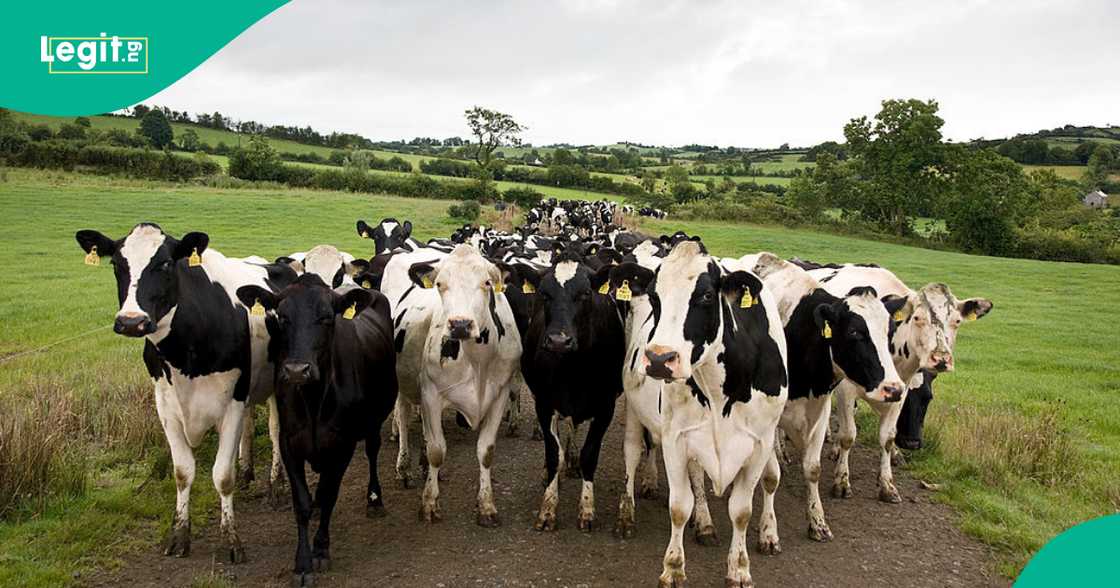Nigeria Imports More Cows From Abroad, Minister Gives Reasons, Targets
- Idi Maiha, the minister of livestock development, has disclosed that the country spends over $1.5 billion annually on dairy imports due to a significant gap between local production and demand.
- The move comes on the back of statistics showing that Nigeria spends over $1.5 billion annually on the dairy import bill
- The plan is to double milk output from 700,000 to 1.4 million tonnes in five years and reduce imports significantly
Legit.ng journalist Dave Ibemere has over a decade of experience in business journalism, with in-depth knowledge of the Nigerian economy, stocks, and general market trends.
Idi Maiha, the minister of livestock development, has explained that Nigeria spends over $1.5 billion annually on dairy imports due to a significant gap between local production and demand.
Speaking at the World Milk Day Conference in Abuja, held over the weekend, Maiha said Nigeria consumes around 1.6 million metric tonnes of milk annually, but produces just 700,000 metric tonnes, leaving a 60% supply gap covered through costly imports.

Source: Getty Images
Maiha said:
“Our low production not only drains foreign exchange bbecause we have to import to cover up the deficit but also undermines food security.
"More critically, our per capita milk consumption is among the lowest globally.”
Vanguard reported that the minister also noted that Nigeria falls far short of the World Health Organisation’s recommended annual milk intake of 210 litres per person, with average consumption at just 8.7 litres.
Maiha added:
“Our current level barely enough for tea throughout the rainy season. “Our goal is ambitious but achievable; to double Nigeria’s milk production from 700,000 tonnes to 1.4 million tonnes annually in the next five years."

Source: Facebook
Why is Nigeria importing milk?
Speaking further, the minister explained that the problem is that Nigeria’s cattle population of over 20 million consists mainly of traditional pastoralist breeds that don’t produce much milk.
These local breeds are not as productive as modern dairy cattle.

Read also
Dangote compares Nigeria's new petrol price to West African countries, confirms the cheapest
He added:
"To address the shortfall, Nigeria is importing high-quality dairy cattle from Denmark. One local farm has already received over 200 female cattle, known as heifers, and is now using intensive breeding techniques to expand its herd with these higher-yielding animals."
Additionally, Nigeria has launched a national strategy for managing animal genetic resources with help from the Food and Agriculture Organisation, a United Nations agency that focuses on food and farming issues, BusinessDay reports.
Minister Maiha emphasised that Nigeria is not starting from scratch in this effort.
Maiha said:
“With over 20.9 million cattle, 60 million sheep, and 1.4 million goats already, we are not starting from zero, we are building from strength."
FG to turn Obudu Ranch into dairy hub
Earlier, Legit.ng reported that the Nigerian government announced plans to transform the Obudu Cattle Ranch into a major livestock and dairy hub.
This move will propel the country towards actualising Nigeria's N33 trillion beef and dairy industry.
The government has also put other plans in place to drive food security and the development of the livestock industry.
Proofreading by James Ojo, copy editor at Legit.ng.
Source: Legit.ng



